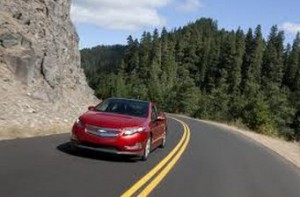
“Monsanto is the whipping board for every person that has limited agricultural knowledge and is fearful of what they don’t understand. They are probably credited with saving more lives than any corporation. Without their technology there would be many more deaths because of starvation. I know I will not change anyone’s mind about the company because it takes a lot of time to understand how GMOs and their efforts are good for populations.” Reader comment posted last week.
“There’s certainly a lot we don’t know. I had very mixed feelings about voting for the GMO labeling in November. We’ve been eating these genetically modified foods for many years and I’ve yet to find out about any real negative consequences. The main reason I wrote this post is that it symbolizes our tendency to find Darth Vader, and what it might mean for other companies out there.” Editor’s response to blog post, “Monsanto beats BP as ‘Most Evil Corporation’ and adds Climate Change to its list along with GMOs.”
So, let’s take this further…..
- Mother Jones’ Josh Harkinson analyzed Tesla CEO Elon Musk and his company taking the US Dept. of Energy grant to help bring the Model S electric car to market – how hypocritical it is for Musk and other Silicon Valley entrepreneurs to espouse libertarian politics and then take federal funding. The link to my post in Autoblog Green isn’t working now, but if you go there, scroll down about four articles to find and read my take on it.
- A biographical PBS documentary on Henry Ford details his accomplished life as the father of the modern automotive manufacturing plant with the Model T, but also digs into his moral quandaries including his antisemitism and how he treated his son Edsel Ford, the second Ford Motor Co. chief executive.
- Or Thomas Edison, developer of the phonograph and the long-lasting light bulb, for staging and filming electrocution of and elephant to demonstrate the danger of alternating current (AC) and why direct current (DC) should have been adopted by electric utilities. Edison was at war with AC leaders such as Nikola Tesla (sound familiar?), Westinghouse and General Electric. He didn’t win that fight, but DC is still around (DC faster chargers, for example).
These moral quandaries permeate the business world, not to mention politics, albeit in much more sublime and tedious methods than chosen by the legendary Henry Ford and Thomas Edison. Corporate ethics has become a mainstream topic in recent years and is the subject of conferences and professional networks. Along with adopting a sustainability policy, many corporations are investing heavily in improving their image in community service and donations and endorsing organizations dedicated to human health and other worthy causes. Yet there’s no getting away from taking on aggressive, and occasionally manipulative and questionable, tactics for companies to surpass their competitors and to navigate through the regulatory environment.
Public image and facing condemnation by activists skilled at tarnishing that image is one thing, and pragmatic reality is another. Alternative fuel vehicles and technologies each have their own walls to climb to reach widespread adoption. Many of these issues have shades of ethical debate behind them, along with huge challenges to overcome. For example…..
- Plug-in electric vehicles and the “dirty coal,” nuclear, and fossil fuel natural gas powering electricity plants – plus not enough renewable energy like solar producing electricity; range anxiety and the time it takes to charge EVs can be troubling questions, too.
- Natural gas vehicles (NGVs) and hydraulic fracturing (“fracking”) and other shale and methane field extraction dilemmas; plus the higher cost of converted vehicles compared to gasoline and diesel-engine vehicles – and the need for more natural gas fueling stations.
- Hybrids being more costly and competing with cheaper fuel efficient models, which gets trickier if gasoline prices soften.
- Hydrogen fuel cell vehicles offering zero emissions but being too expensive and having hardly any fueling stations; plus the question of where the hydrogen is extracted from and the safety of the vehicles; pins and needles can still be raised for some people by mention of the infamous explosion of the Hindenburg hydrogen-powered aircraft.
- Propane autogas is many times not taken as seriously as natural gas – including federal lobbying by T. Boone Pickens and colleagues for NGV commercial vehicle incentives. There’s resentment that propane is being treated as sort of a step cousin to natural gas while its fuel stations are all over the country and it offers clean fuel much cheaper than gasoline and diesel.
- Biofuels: The corn ethanol E15 battle and Renewable Fuel Standard clash (see lead story for this week). Not long ago, the Detroit 3 had been pushing flex-fuel vehicles and building a bunch with few people finding stations to put E85 into the tank or even trying to; and then there’s the food versus fuel battle – and the struggle of advanced biofuels ever scaling up and being consumed at that same level.
- Fascinating alternative fuels like Volvo Truck’s DME, Rentech’s synthetic fuels, methanol coming back, renewable natural gas (see coverage of Clean Energy’s Redeem), and algae fuel – but they’re in very early stages and need a ton more backing to go anywhere and deliver their true offerings and benefits. It sure sounds good, but……..
The point being: It’s a very big topic, but here are a few things to start thinking about…. Tell a great story and stick to it; tap into every funding source and incentive you can find; partner with stakeholders to build the infrastructure; get butts in seats at ride-and-drives and get fleet managers to test them out; and stick to it – that’s what Musk, Ford, and Edison would probably agree upon when offering advice about succeeding.



